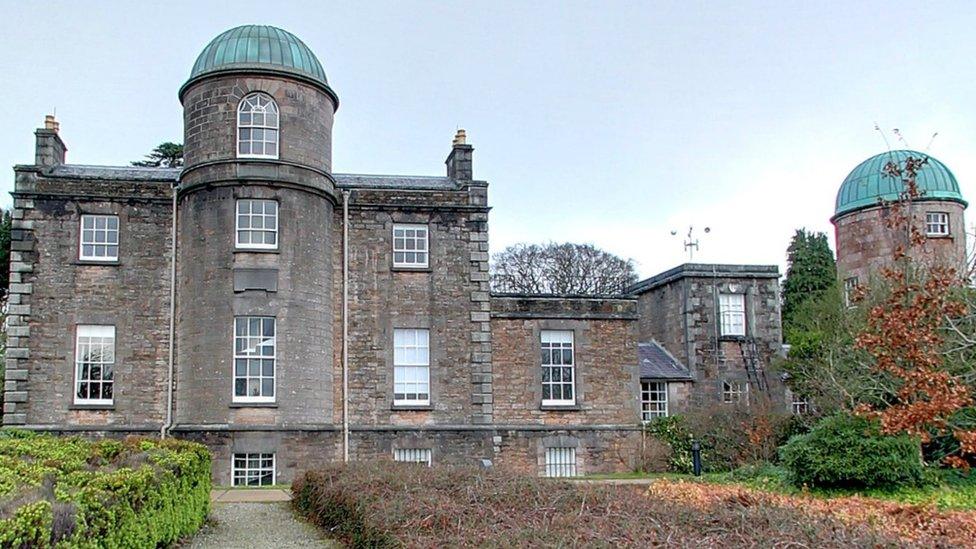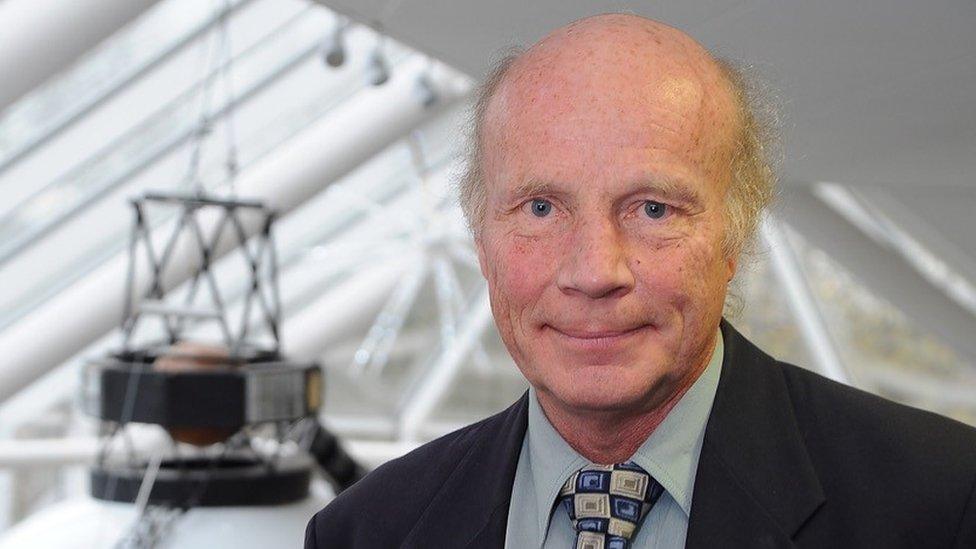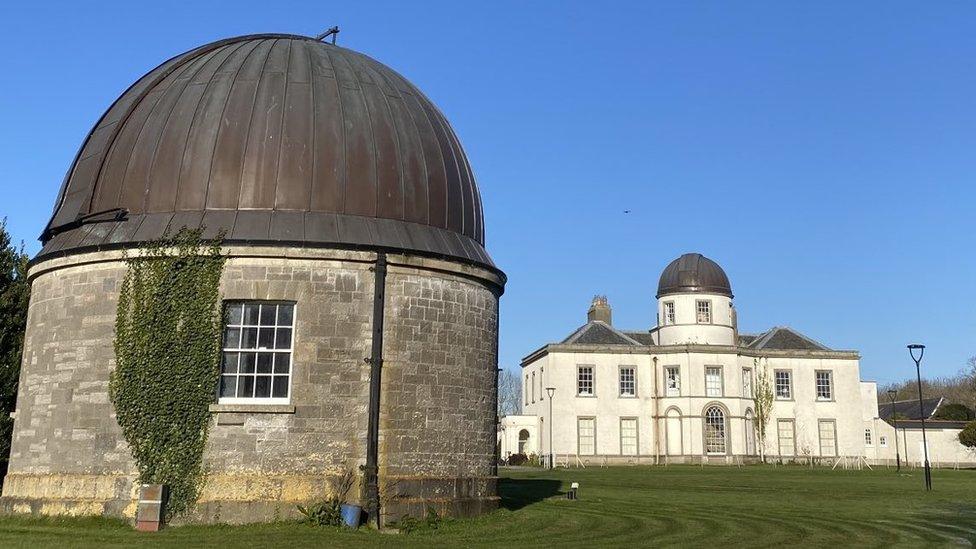Armagh Observatory targets Unesco World Heritage Status
- Published

Armagh Observatory and Planetarium has ambitious plans
Irish government funding could be the "start of a long journey" for Armagh Observatory to obtain Unesco World Heritage Status, the observatory's director has said.
On Tuesday, €800m (£685m) was announced for cross-border projects.
It included money for the Astronomical Observatories of Ireland, which includes Armagh, Birr in County Offaly and Dunsink in Dublin.
The group said it wants to "get on the road" now to achieve a Unesco listing.
Unesco is run by the United Nations to preserve cultural and natural heritage.
The Giant's Causeway is Northern Ireland's only site to be given its world heritage status.
World heritage status
The exact amount of funding for the observatories is still to be officially confirmed.
However, in announcing the funding, the Irish government said it would work "with the Astronomical Observatories of Ireland on how the heritage and tourism value of its three sites at Dunsink, Armagh, and Birr can be harnessed".
Prof Michael Burton, director of the Armagh Observatory and Planetarium, which was founded in the 1790s, said he hoped the funding would help historic sites reach Unesco's "tentative list" for world heritage status.
The funding support will enable the team to complete the application and undertake the necessary studies and planning.

Professor Michael Burton, director of the Armagh Observatory and Planetarium, said he hopes it is "the start of a long journey"
"Each country can put sites on their tentative list," Prof Burton told BBC News NI.
"This will be an application led by Ireland but it will be a trans-national nomination because the UK is involved from the Armagh side.
"There's a lot of work. This initial award will help us get over the line for that."
Prof Burton added that it could take another 10 years to get onto the Unesco list itself.
"You've got to have a full plan in front of you. The tentative list is the first stage. This is a recognition that the government sees us as worthy of beginning that journey."
Development plans
While the three observatory sites have a strong heritage in their collection of telescopes, they also function as active centres of research.
In addition, they serve as hubs for communicating science to the public and explaining it to students.
The funding will help with development proposals at the three sites.
In Armagh, for example, there are plans for a new planetarium, the public centre where visitors journey through the cosmos.
"We all have ambitious plans. So do our colleagues in Dunsink and Birr," Prof Burton said.
"We're trying to properly define those plans, as opposed to just having an idea on a bit of paper. The funding will help us professionalise the planning so we can move to the next stage."

Dunsink Observatory is one of the three sites
Prof Burton added the "very exciting project" will also strengthen collaboration between the three sites.
"This is an all-Ireland project and it doesn't relate to any one side of politics," he said.
"It fits into the ethos of shared island, it's something for all of us.
"Ultimately it's about the public communication of science and the importance of science for society."